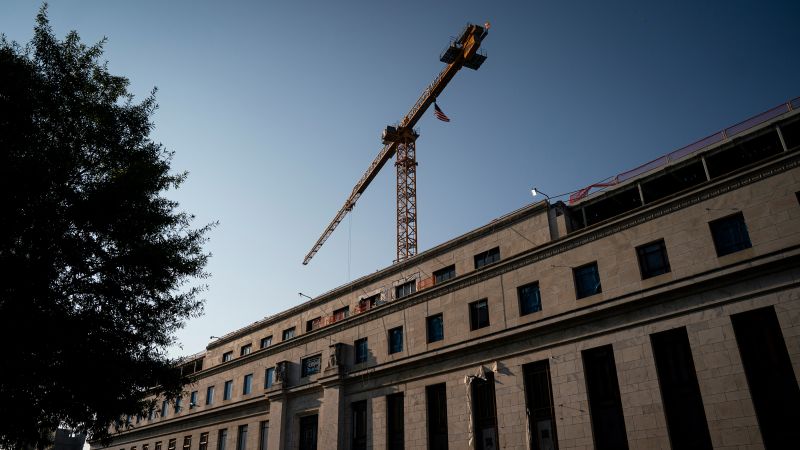A recent legal confrontation has emerged surrounding the Federal Reserve’s private tradition of conducting policy meetings. On Monday, a federal judge dismissed a lawsuit initiated by Azoria Capital—an investment firm closely associated with former President Donald Trump. This legal action sought to compel the Federal Open Market Committee (FOMC), the branch of the Federal Reserve responsible for directing U.S. monetary policy, to hold its meetings in public view. The ruling illustrated the ongoing tension between governmental transparency and the operations of independent financial institutions.
The suit was particularly aimed at challenging decades of closed-door discussions that occur within the FOMC, which is scheduled to convene for its meetings on Tuesday and Wednesday to deliberate on critical interest rate decisions. Azoria Capital contended that the FOMC’s private meetings violate the provisions of the “Sunshine Act,” an enactment established during the Nixon administration that mandates open access for government meetings to promote transparency. However, U.S. District Judge Beryl Howell in Washington, D.C., rejected this argument, clarifying that the FOMC does not qualify as a government agency, thereby exempting it from the Sunshine Act.
The Federal Reserve, created by Congressional legislation, operates as an autonomous body intended to render key economic decisions without succumbing to political influences. This independence is fundamental to its function, as it safeguards against fluctuations in political sentiment that could undermine economic stability. Judge Howell emphasized the irrelevance of the Sunshine Act to the FOMC when issuing her ruling. In her opinion, the closed meetings were integral to the Fed’s ability to function effectively and carry out its vital economic responsibilities.
In a rather pointed critique of Azoria Capital’s timing and motivations, Judge Howell described the lawsuit as an “eleventh-hour argument.” The legal action came just days before the scheduled FOMC meetings, which had been public information for nearly a year. Howell posited that the lawsuit could be a strategy to generate publicity for Azoria Capital’s newly launched fund that focuses on companies influenced by advancements in artificial intelligence. She referred to James Fishback, the firm’s CEO, whose association with Trump and recent media appearances might intertwine business interests with legal maneuvers, leading to speculation about ulterior motives behind the suit.
During the proceedings, Howell raised concerns about the appropriateness of using court filings to advance business objectives, remarking on the burden of cases that are being processed through the judicial system. She expressed discomfort with what she viewed as the exploitation of the legal system for promotional endeavors. Following the denial of a temporary restraining order against the FOMC, Fishback expressed resolve on behalf of Azoria Capital to pursue their appeal for greater transparency and accountability, emphasizing their commitment to represent the interests of the American public.
This legal confrontation is reflective of a broader trend during Trump’s presidency, characterized by efforts to reshape the Federal Reserve. The prior administration had sought to exert influence over the central bank and its policies, leading to public disputes, including a notable clash between Trump and Fed Chairman Jerome Powell over monetary policy directions. Howell’s ruling reaffirms that the upcoming FOMC meetings will proceed as they have historically—behind closed doors—upholding the tradition of confidentiality that governs these crucial discussions.
Ultimately, this case underscores ongoing debates about the balance between institutional autonomy and public transparency within significant financial and governmental operations. As the economy continues to navigate turbulent waters, the role of the Federal Reserve—and its operational secrecy—will invariably remain under scrutiny amidst calls for reform and accountability.











